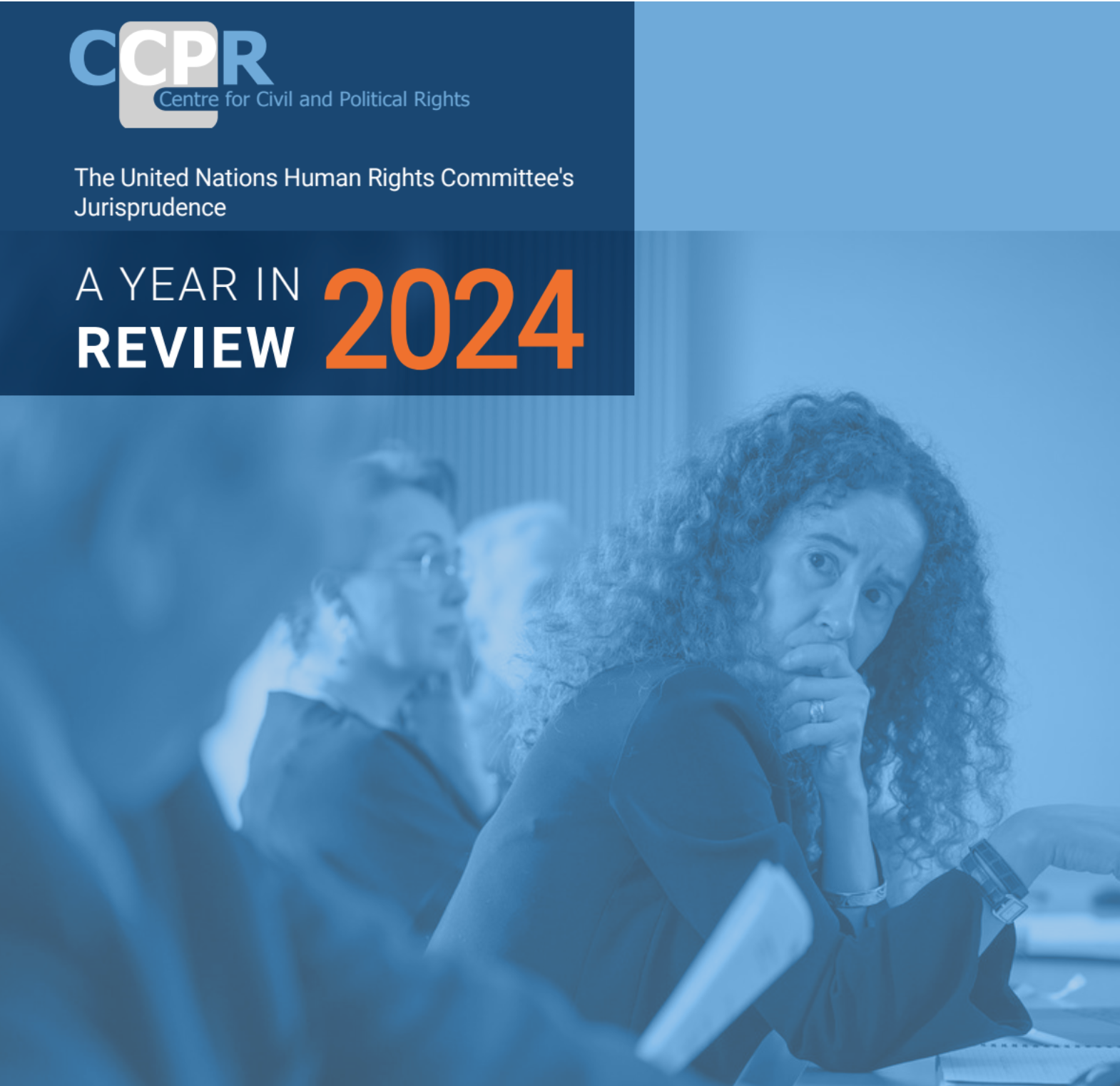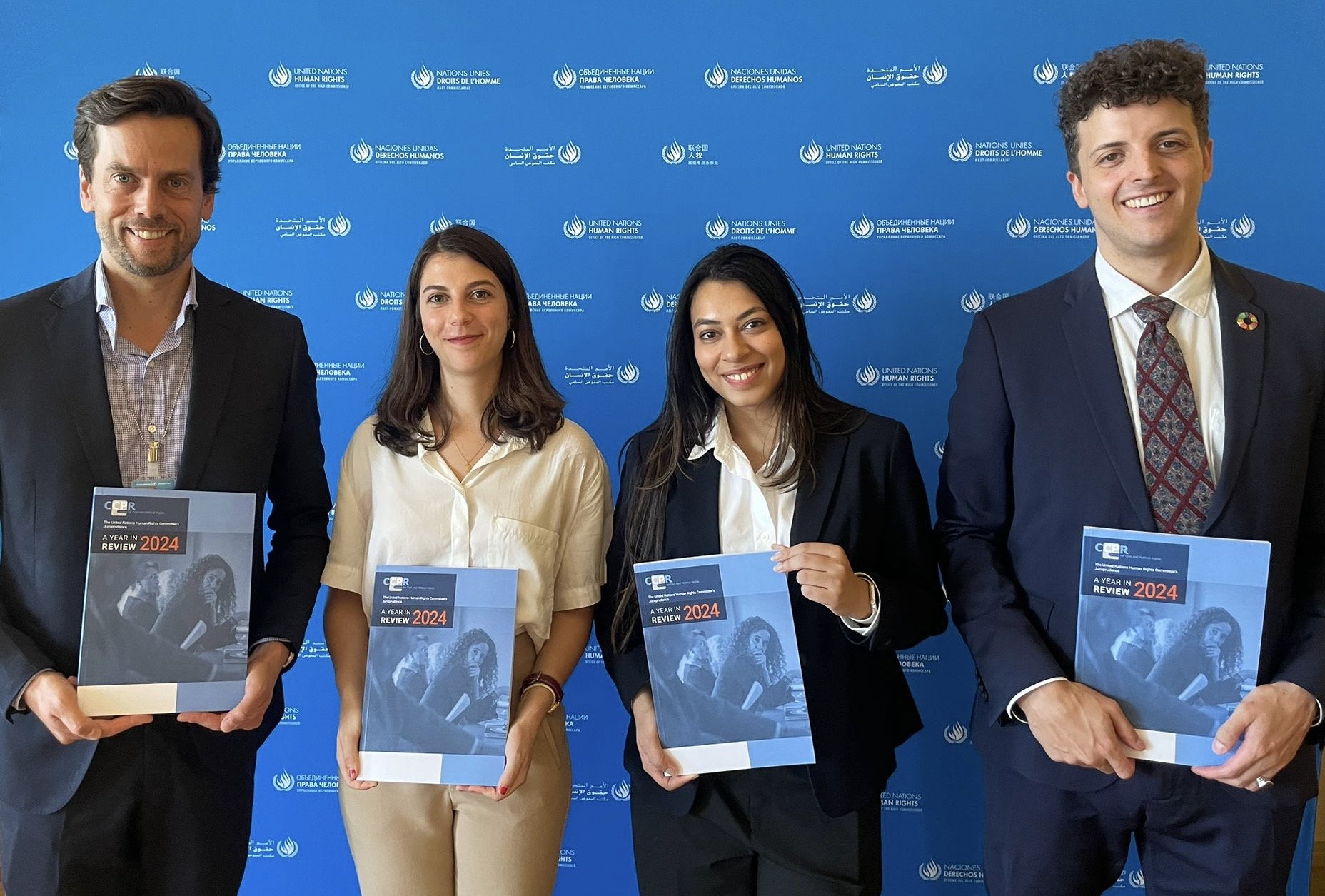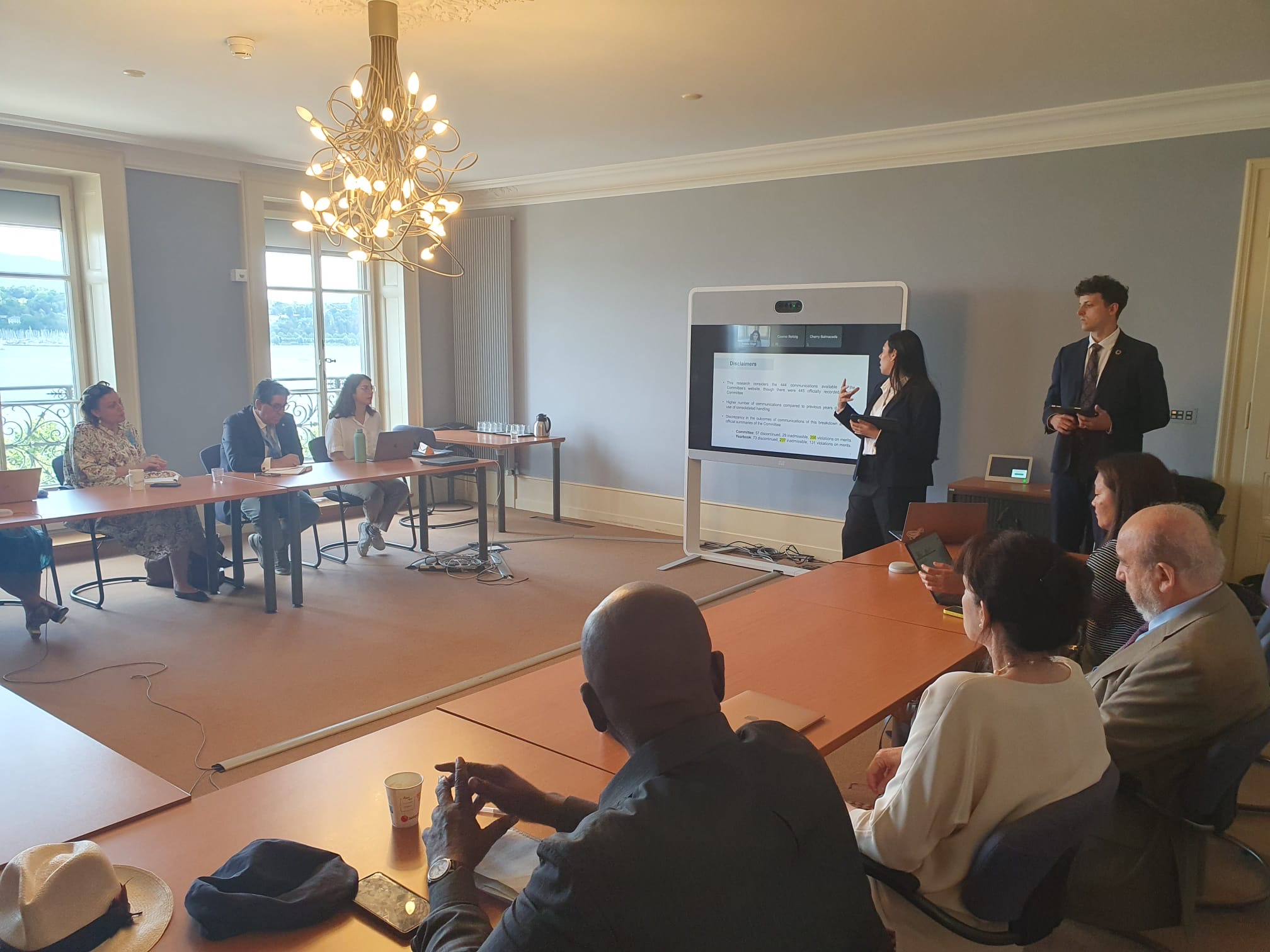The UN Human Rights Committee's Jurisprudence - A Year In Review 2024
Published on 14 Jul 2025, 12:07 PM
Publication of a comprehensive analysis of the Views adopted by the Human Rights Committee in 2024

The Centre for Civil and Political Rights is pleased to present the analysis of the 2024 individual communications of the United Nations (UN) Human Rights Committee (the Committee). This analysis, conducted annually since 2014, highlights the latest developments in the Committee’s jurisprudence and provides deeper insights into the Committee's work. The purpose is to make the jurisprudence of the Committee more visible and accessible to all individuals involved in the promotion and protection of civil and political rights. We are confident that this publication will be useful to both litigators and human rights defenders.
The research has been carried out in collaboration with the Law Clinic of the LL.M. in International Law of the Graduate Institute of Geneva. The students prepared the related research materials and produced the articles and summaries included in this Yearbook under the supervision of the Head of the Law Clinic and previous Committee member and Chair, Prof. Yuval Shany, along with the Centre. We would, thus, like to thank the students who participated in the project, namely Tanya Goel, Cosmo Loris Reitzig and Tanisha Singh. Coordination, research, and editing were carried out by Irene Aparicio, Human Rights Officer at the Centre.
Tracking Jurisprudence: Insights and Trends of 2024 Sessions
 From left to right: Roland Chauville (Director of CCPR Centre), Irene Aparicio García (Human Rights Officer at CCPR Centre), and Cosmo Reitzig and Tanya Goel (students of the Graduate Institute of Geneva).
From left to right: Roland Chauville (Director of CCPR Centre), Irene Aparicio García (Human Rights Officer at CCPR Centre), and Cosmo Reitzig and Tanya Goel (students of the Graduate Institute of Geneva).
During the year 2024, the Committee held the 140th, 141st, and 142nd sessions. According to the official information given by the UN Secretariat, the Committee enlarged its jurisprudence by issuing 445 communications, though our analysis showed 444 communications (134 decided on merits, 237 inadmissible, and 73 discontinued). This is an increase compared to the year 2023, when 143 communications were adopted. As such, the Committee continues to receive the highest number of communications among all UN treaty bodies. Regarding the follow-up procedure for Views, in 2024 the Committee only issued one report instead of the common practice of issuing two, and graded 10 communications, which is lower than in previous years. The most frequently awarded grade was once again C (not satisfactory), which confirms the persistent pattern of limited compliance. The issuance of A grades (largely satisfactory) continued its gradual upward trend, B grades (partially satisfactory) declined sharply in 2024, no D grades (no cooperation) were awarded, and E grades (contrary or rejecting measures) continued to decrease as in the past three years.
Unfortunately, as mentioned in previous years, the Committee faces a backlog of submissions, and now the liquidity crisis affecting the UN Secretariat — and consequently the Petitions Section — has further deepened, continuing to hinder the Committee’s ability to respond effectively to victims’ complaints. As in last year, the Centre will continue to advocate for the Views as a key avenue to develop international human rights jurisprudence and promote the recognition, redress, and reparation of victims. The Centre also persists in urging States parties to fully support the Petitions Section's work, including through adequate funding and paying the installments they committed to.
Presentation of Yearbook to Committee Members
 Cosmo Reitzig and Tanya Goel presenting the findings of the Yearbook to Committee members in Palais Wilson, Geneva
Cosmo Reitzig and Tanya Goel presenting the findings of the Yearbook to Committee members in Palais Wilson, Geneva
For the third year in a row, the students presented the Yearbook to the Human Rights Committee in Palais Wilson, Geneva, during its 144th sessiion. After the students presented the key findings and summaries of the emblematic cases of 2024, there was time for a short dicussion and feedback from Committee members.
The discussion addressed key challenges and opportunities related to the visibility and use of the Committee's individual communications procedure, particularly in underrepresented regions like Africa and Latin America. Participants explored the CCPR Centre’s role in providing targeted training to civil society organizations in these regions and discussed the comparative advocacy dynamics between the Committee and regional bodies such as the IACtHR and ACHPR. Questions were also raised about the methodology behind selecting emblematic cases, including the role of legal representation (council) in cases and potential correlations with findings of violations.
Moreover, members also underscored the urgent need to strengthen the visibility and dissemination of the report, particularly in the context of the UN’s ongoing financial and liquidity crisis, which threatens the accessibility and functioning of the UN treaty bodies. Enhancing awareness and engagement with the Committee is essential for ensuring that victims of human rights violations continue to have a meaningful avenue for redress.
Report Download
The full report is available here.



